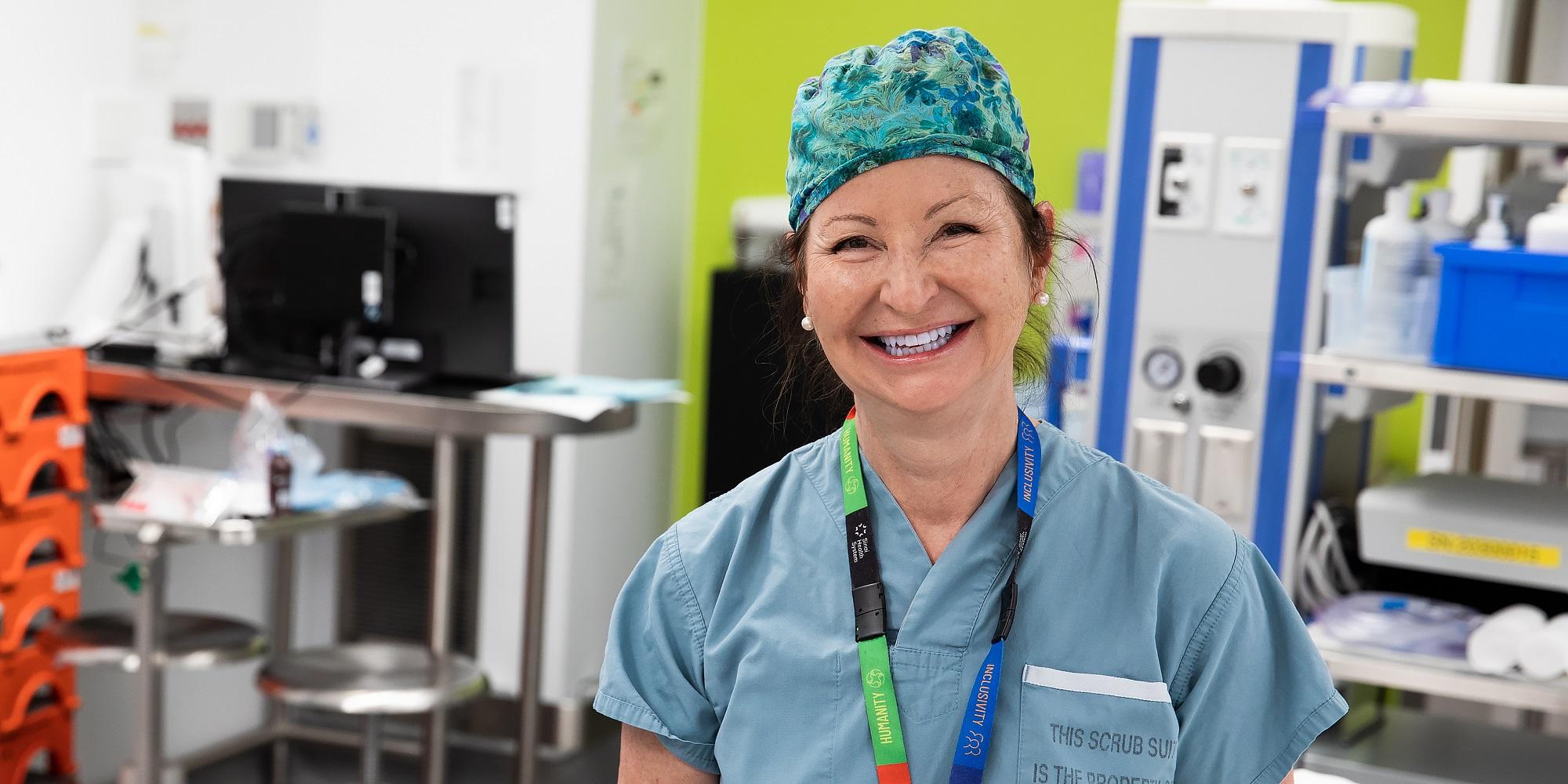Mount Sinai Hospital’s Dr. Carol Swallow shares her vision as Chair of the University of Toronto’s Department of Surgery

This July, Dr. Carol Swallow, a surgical oncologist, began her appointment as Chair of the University of Toronto’s Department of Surgery.
This is the first time a surgeon from Mount Sinai Hospital has held the position. We spoke to Dr. Swallow, who also happens to be the first woman to chair the department, about her vision to create a more inclusive, supportive culture in surgery and why she’s incredibly optimistic about the next generation of surgeons.
How do you feel being the first surgeon from Mount Sinai Hospital to hold this position?
One of the things that I’m very inspired to do is to represent Mount Sinai Hospital and our surgical department within the wider Temerty Faculty of Medicine. The fully affiliated hospitals are so essential to the University of Toronto’s academic mission. As a central University Department of Surgery, we really rely on our partnerships with these hospitals, and their promotion of academic surgery and of knowledge creation through their research institutes. We need that kind of partnership to support our academic surgeons.
What excites you most about your new role?
U of T’s Department of Surgery has such a strong tradition of academic excellence. It is internationally renowned for excellent clinical care with continuous innovation, as well as high caliber scholarly productivity; we also have a strong tradition of teaching excellence and scholarship in the area of surgical education. So it is an incredible honour to be tasked with overseeing all of this activity by my wonderful colleagues and all of our learners.
I’m excited about the opportunity to make changes in the way that we interact with each other as faculty, the way we interact with our learners, and other departments within the Temerty Faculty of Medicine, as well as other faculties within the larger University of Toronto family.
What kind of opportunities do you see?
In surgery, people have traditionally been encouraged to be independent and stand on their own without the support of others. I think we need to acknowledge that the culture has changed, and we need to change. While this culture shift has already begun, what I want to do is accelerate it in a purposeful manner.
There are very real challenges that we need to support each other through in various phases of our careers. That includes parental leave, the child rearing years, the transition into practice, the transition out of practice, sabbatical years, medical leave and any kind of family leave.
You are the first female surgeon to head up this department. Why do you think it’s taken this long?
The last selection process for this role was almost 13 years ago. At that time, there were fewer female surgeons in the department overall.
There is an element of delay between taking people into training and surgical divisions, graduating, hiring them as faculty, getting them into initial leadership roles, and then ultimately into Chair roles. You can’t just say, “We’re going to take 50 per cent women residents,” and then next year, have a female Chair of Surgery. That being said, we need to really dig in and do our best to eliminate barriers to leadership development for women, and other groups that have traditionally been under-represented in surgery.
It’s recognized that we need diversity, not just in terms of gender, but also in terms of ethnicity, sexual orientation, religion, everything. We need diversity in order to represent Toronto and the patients we serve, to serve them better.
What do you consider important when it comes to training the next generation of surgeons?
Traditionally, surgeons have often been perceived as technicians who take care of a mechanical or physical problem. Surgery entails a lot more than that, in terms of understanding the individual patient, what their priorities are, what their values are, and how to create value in terms of quality of life. We have a responsibility to make sure that we graduate surgeons who are not only excellent technicians and clinicians, but also humanitarians who can and will look after the whole person.
When you think of the prospective surgeons coming in, what are you optimistic about?
There’s such excitement in surgery, because part of what is innate to surgeons is a spirit of innovation, and springing from that, entrepreneurship. Those are two things that we’re really emphasizing in the Department of Surgery. Supporting surgeons who have, not only creativity, but also the drive to create a new system or a new approach, whether it’s in the field of education, device development or creating a decision tool. We want to support surgeons who have those ideas, and the ambition to realize them, so that their dream can become a reality.











